Downtown Los Angeles wants to be the new West Hollywood
Downtown Los Angeles -- or DTLA -- is slowly transforming into a desirable LGBT destination
By Troy Petenbrink on September 5, 2016 @thegaytraveler

There’s no question that West Hollywood still reigns as the gay mecca of Los Angeles. However, downtown L.A. is in the midst of a revival and the LGBT community – as it does so often – is playing a role.
For many years, downtown Los Angeles, or DTLA, was essentially abandoned. That started to change in 1999 with the opening of the STAPLES Center sports arena, with progress ramping up as the economy continued to improve. In 2014, GQ went as far as to call DTLA “America’s next great city.”
The rebirth is partly due to an influx of new residents. According to the Downtown Center Business Improvement District, DTLA now has nearly 60,000 residents — a number that’s doubled since 2000. And LGBT people comprise a large percentage of those new residents.
The influence of LGBT people on DTLA was recognized this year with the creation of the DTLA Proud Festival, which “celebrates the profound revitalization of DTLA and the growing LGBT community.” It was compounded by the decision to move AIDS Walk Los Angeles out of West Hollywood to DTLA.
For LGBT tourists, West Hollywood is still the area’s best destination, but what awaits those who opt for DTLA? As it transpires, quite a lot.
Stay
Located across the street from STAPLES Center and the L.A. Live entertainment center, the Luxe City Center Hotel has a prime location. The modern property’s 178 guest rooms and suites are among the most spacious of any DTLA hotel.
The Beaux-Arts-inspired Millennium Biltmore Hotel was built in 1923 and is the grande dame of L.A. hotels. A historic and cultural landmark, it offers classic styling with modern amenities — it’s L.A.’s answer to the grandeur of the Waldorf Astoria in NYC.
The Hilton Checkers, with its Spanish-style façade, is another historic property that serves the needs of today’s travelers. Its rooftop deck offers outstanding views of Los Angeles.
Play
The police-themed Precinct is a spacious bar and nightclub that helped pave the way for DTLA’s burgeoning LGBT nightlife. A relaxed atmosphere and large dance floor ensure it’s popular with locals and tourists alike.
Redline bills itself as “DTLA’s premier gay bar” and certainly has plenty of fans. If you’re a Drag Race fan, season 2 star Pandora Boxx hosts “Dragalicious” on Wednesdays.

The newest kid on the block, Bar Mattachine is a trendy, bi-level cocktail bar. Its name is an homage to the Mattachine Society, one of the first gay rights organizations in the United States.
The New Jalisco Bar was a mainstay of the “old” DTLA and the only full-time gay bar in DTLA for many years. It has a very loyal Latin clientele, and is enjoying continued popularity as DTLA undergoes an LGBT transformation.
Eat
Chef Ray Garcia’s B.S. Taqueria offers outstanding Mexican food and drink in a colorful, casual space. The quality of the food is exactly what you would expect from Garcia, Esquire’s chef of the year for 2015.
Spring Los Angeles is a beautiful, classy French restaurant. In addition to its outstanding menu, diners can enjoy its open kitchen, fountain, and all-glass atrium ceiling as they dine.
Bottega Louie is a combination bakery, gourmet market and Italian restaurant. It has won awards for everything from “best brunch in L.A.” to “best place to break bread with friends.”
See
A massive entertainment complex, L.A. Live sits between the STAPLES Center sports arena and the Los Angeles Convention Center. It is home to multiple performance spaces, restaurants, bars, retail outlets, and the Grammy Museum.
The Broad is one of the newest editions to Los Angeles’ world class arts scene (which includes LACMA, The Getty Center, and Hammer Museum), housing an extensive collection of contemporary art.
Two decades before Stonewall, a group of gay men at a downtown Los Angeles donut shop fought back against LAPD harassment. That slice of LGBT history is one of many interesting tidbits shared during Gay DTLA: City of Angels Walking Tour. The tour lasts 2.5 hours and visits many of DTLA’s must-see sites, including Grand Central Market, El Pueblo de Los Angeles Historical Monument, and Pershing Square.
For more information on visiting DTLA, visit discoverlosangeles.com.
Man Slashed on NYC Subway for Kissing Trans Partner
The 28-year-old victim was treated at Bellevue Hospital as the NYPD Hate Crimes Task Force joined the search for the unidentified assailant.
By John Riley on January 20, 2026 @JRileyMW
A New York City subway rider was slashed in the face earlier this month by an unidentified assailant who took offense to him kissing his transgender partner. The attack occurred around 7:50 p.m. on January 10 aboard a southbound No. 6 train as it traveled through Manhattan.
According to police, the 28-year-old victim was kissing his partner when the suspect began shouting anti-gay slurs. The verbal abuse quickly escalated into a physical confrontation. During the argument, the suspect struck the victim with a sharp object, causing a deep laceration on the right side of his face, according to New York CW affiliate WPIX.
Hockey Player Says ‘Heated Rivalry’ Inspired Him to Come Out
After years of playing while closeted, Jesse Kortuem says the HBO series Heated Rivalry helped him finally reconcile his identity with the sport he loves.
By John Riley on January 19, 2026 @JRileyMW
Jesse Kortuem, a hockey player who has competed in several adult leagues but never at the professional level, says he was inspired to come out after watching HBO's Heated Rivalry, a romance centered on closeted gay hockey players.
In a Facebook post, Kortuem recalled growing up in Minnesota as the youngest of four boys and playing hockey from a young age, while struggling to reconcile his love for the sport with his sexuality.
"To any hockey player, the sounds of the rink and the feel of cold air are unmistakable. The slapshots, the pucks hitting the boards, the skates carving fresh ice, and the high-pitched clang of a puck hitting the post bring immense comfort," Kortuem wrote. "For a long time, however, the rink did not feel like a place where I could be all of me. I felt I had to hide parts of myself for far too long."
Tucson Pride Cancels 2026 Festival, Dissolves Board
The decision was announced one month before the event was scheduled to take place, after years of financial and organizational strain.
By John Riley on January 27, 2026 @JRileyMW
Organizers of the annual Tucson Pride festival have dissolved the organization’s board and canceled the upcoming 2026 Pride festival and all related events.
As reported by the Arizona Daily Star, the two-member board -- Sam Cloud and Jeff Fulgham -- announced the decision in a note posted to the Tucson Pride website and its social media accounts on January 21, exactly one month before the festival was scheduled to take place.
"This decision was not made lightly," the note reads. "We recognize the deep importance Tucson Pride has held in our community since 1977, serving as a space of visibility, advocacy, celebration, and resilience for nearly five decades. We are profoundly grateful to every volunteer, sponsor, artist, activist, and community member who has supported Tucson Pride throughout its history."
Support Metro Weekly’s Journalism
These are challenging times for news organizations. And yet it’s crucial we stay active and provide vital resources and information to both our local readers and the world. So won’t you please take a moment and consider supporting Metro Weekly with a membership? For as little as $5 a month, you can help ensure Metro Weekly magazine and MetroWeekly.com remain free, viable resources as we provide the best, most diverse, culturally-resonant LGBTQ coverage in both the D.C. region and around the world. Memberships come with exclusive perks and discounts, your own personal digital delivery of each week’s magazine (and an archive), access to our Member's Lounge when it launches this fall, and exclusive members-only items like Metro Weekly Membership Mugs and Tote Bags! Check out all our membership levels here and please join us today!
The Magazine
-
Most Popular
 Montgomery County Ordered to Pay $1.5M in LGBTQ Books Case
Montgomery County Ordered to Pay $1.5M in LGBTQ Books Case  Chicago Trans Man Jumps Into Lake Michigan to Save Baby
Chicago Trans Man Jumps Into Lake Michigan to Save Baby  Murder in Glitterball City Gets Lost in Its Own Myth
Murder in Glitterball City Gets Lost in Its Own Myth  Shia LaBeouf Arrested After Alleged Anti-Gay Rant
Shia LaBeouf Arrested After Alleged Anti-Gay Rant  "MAGA Invasion" To Collide With "Mini Gay Days" at Disneyland
"MAGA Invasion" To Collide With "Mini Gay Days" at Disneyland  7 Suspected of Pornographic, Anti-LGBTQ Graffiti at Stadium
7 Suspected of Pornographic, Anti-LGBTQ Graffiti at Stadium  Gay French Ice Dancer at Center of Olympic Judging Controversy
Gay French Ice Dancer at Center of Olympic Judging Controversy  Bethesda's Play in a Day Puts Six Theaters on the Clock
Bethesda's Play in a Day Puts Six Theaters on the Clock  Dendy’s Nothing Up My Sleeve Casts a Mesmerizing Spell
Dendy’s Nothing Up My Sleeve Casts a Mesmerizing Spell  Capital Pride Alliance Expands Board With 13 New Members
Capital Pride Alliance Expands Board With 13 New Members
 Bethesda's Play in a Day Puts Six Theaters on the Clock
Bethesda's Play in a Day Puts Six Theaters on the Clock  Chicago Trans Man Jumps Into Lake Michigan to Save Baby
Chicago Trans Man Jumps Into Lake Michigan to Save Baby  Montgomery County Ordered to Pay $1.5M in LGBTQ Books Case
Montgomery County Ordered to Pay $1.5M in LGBTQ Books Case  Dendy’s Nothing Up My Sleeve Casts a Mesmerizing Spell
Dendy’s Nothing Up My Sleeve Casts a Mesmerizing Spell  Bill Irwin’s On Beckett Is an Exhilarating Triumph
Bill Irwin’s On Beckett Is an Exhilarating Triumph  Murder in Glitterball City Gets Lost in Its Own Myth
Murder in Glitterball City Gets Lost in Its Own Myth  7 Suspected of Pornographic, Anti-LGBTQ Graffiti at Stadium
7 Suspected of Pornographic, Anti-LGBTQ Graffiti at Stadium  GoFundMe Launched to Monitor Stonewall Flagpole in New York
GoFundMe Launched to Monitor Stonewall Flagpole in New York  Same-Sex Marriages Could Be Ignored Under Tennessee Bill
Same-Sex Marriages Could Be Ignored Under Tennessee Bill  Gay Former U.K. Ambassador to U.S. Arrested Over Epstein Ties
Gay Former U.K. Ambassador to U.S. Arrested Over Epstein Ties
Scene
Metro Weekly
Washington's LGBTQ Magazine
P.O. Box 11559
Washington, DC 20008 (202) 527-9624
About Us pageFollow Us:
· Facebook
· Twitter
· Flipboard
· YouTube
· Instagram
· RSS News | RSS SceneArchives
Copyright ©2025 Jansi LLC.

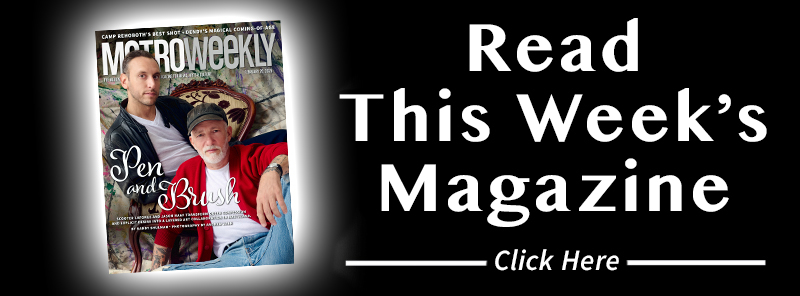
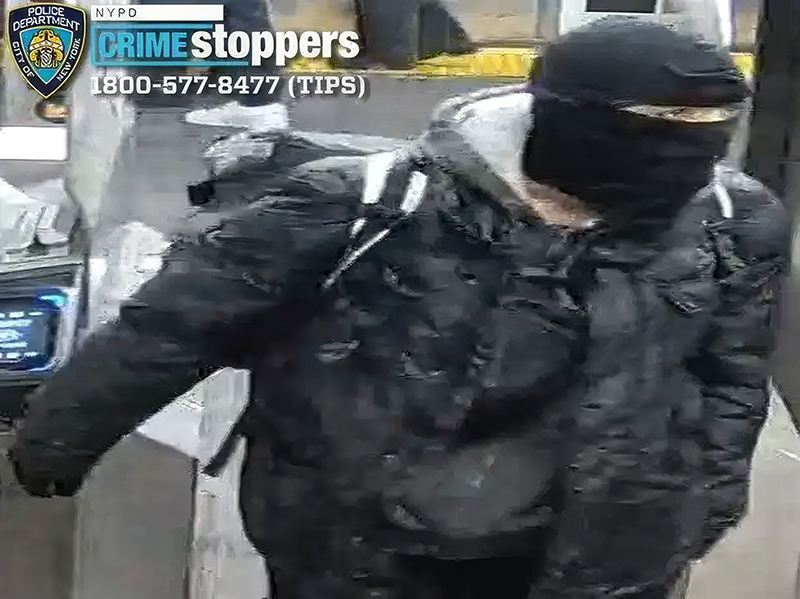
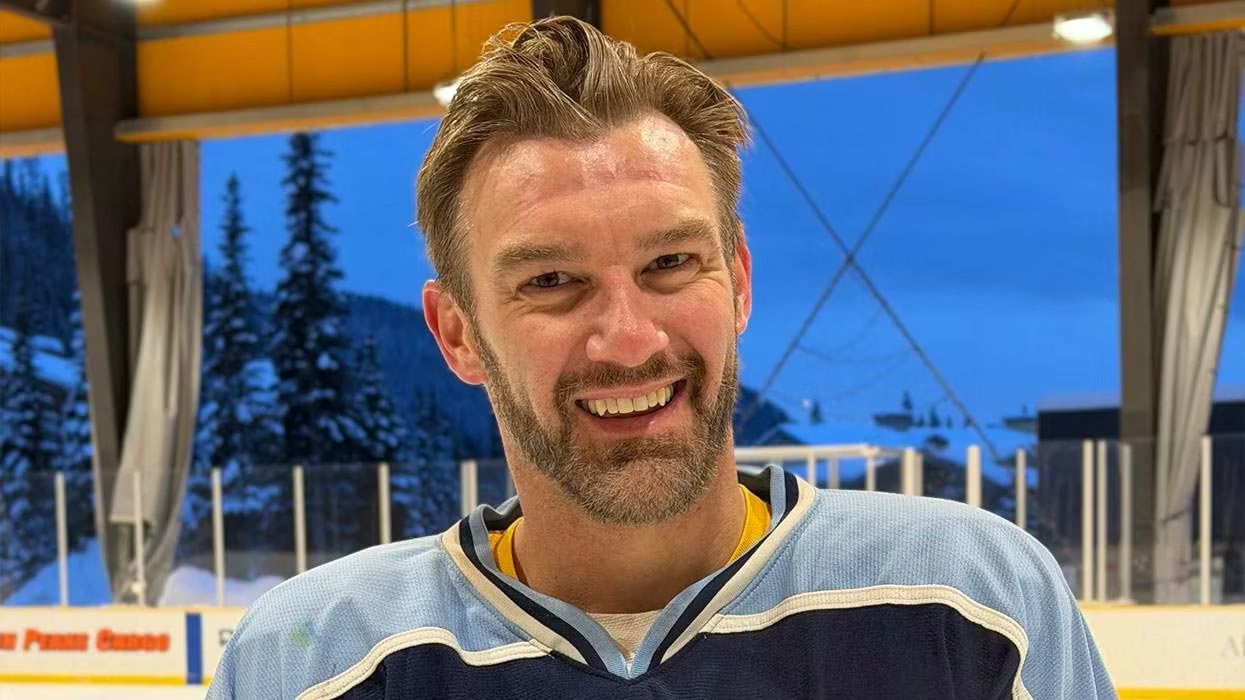
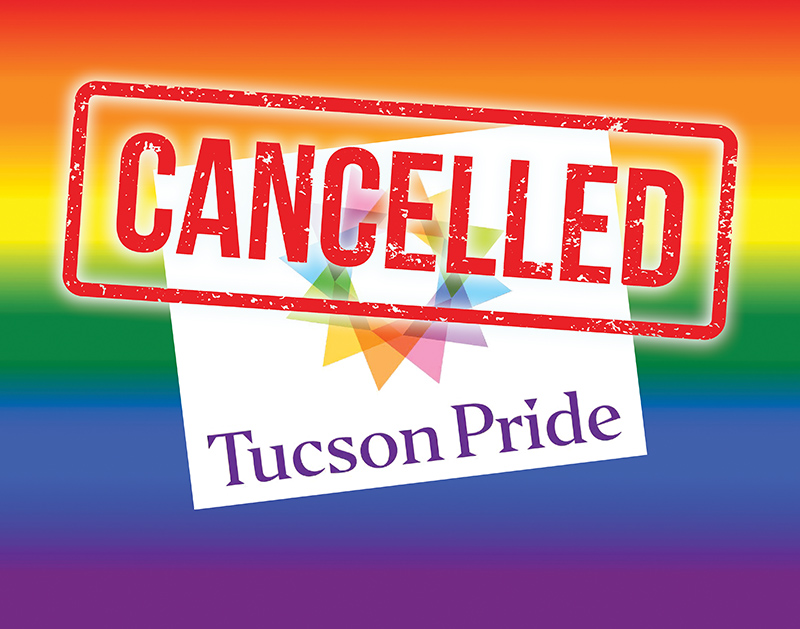
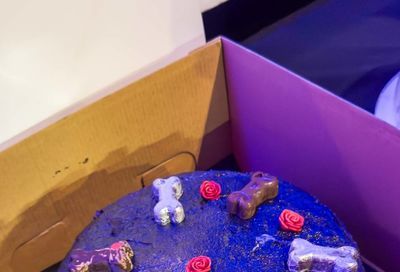
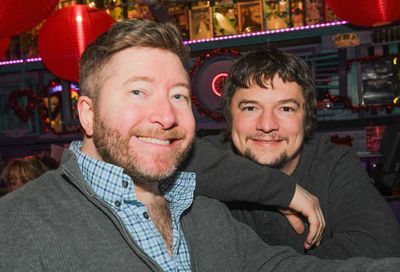
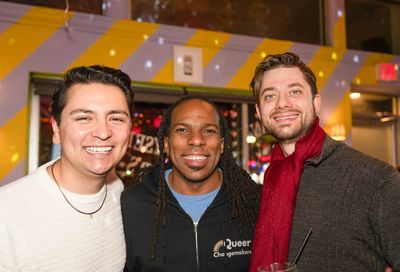
You must be logged in to post a comment.